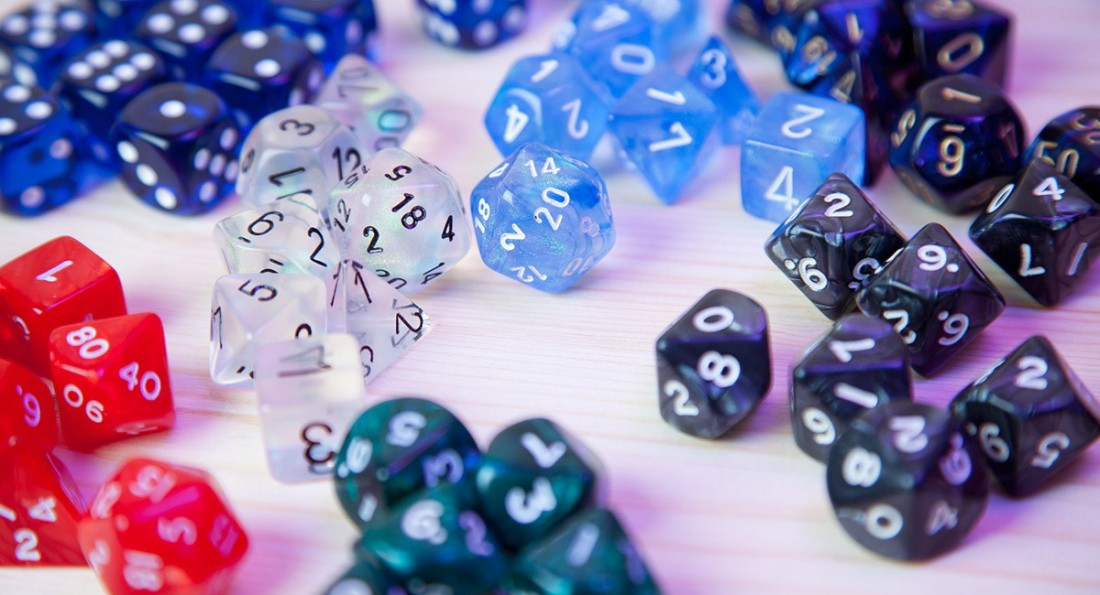Critical Hit with Drew Nordman
Tabletop Resurgence
Albert Einstein once said, “the true sign of intelligence is not knowledge but imagination.” If the guy who conceived the theory of relativity said it, it probably has some clout, right?
Next year will mark the 40th anniversary of a prolific pastime that celebrates the use of imagination as its key mechanic – a hobby or game where you create a character from scratch, with as much or as little detail as you want, as long as you adhere to and play the role of this character as accurately as possible. This genre came to be known as the role playing game, or RPG.
Before Mass Effect and before World of Warcraft, before Final Fantasy and before video games in general, a platform was devised which allowed you and a group of friends to participate cooperatively in an adventure conceived and crafted entirely by those playing it. A game where quick wit and keen problem solving skills are as paramount as the puzzles, challenges and enemies created to best the players. I’m talking of course, about Dungeons & Dragons.
On the surface, its premise is quite simple. A team of friends take on a quest created by the Game Master. It’s the GM’s job to challenge the players, and create an immersive world for them to exist in. As long as you have an imaginative group of players and a talented GM, there is no limit to what you can expect during an adventure. Below this premise lies an unbelievable amount of complexity that could take someone literally a lifetime to master. It’s impossible to have a contingency for every conceivable permutation, but during the 40 years of its existence, the rules by which to play D&D have been artfully refined into a game called Pathfinder. Players can easily jump into it without being overwhelmed. Unfortunately, it’s been a long, long road to get to where we are today.
In the late ‘70s, D&D was viewed bizarrely by some as an occult practice, given its western fantasy theming. Slaying demons and gods alike were among some of the things that were plausible, so when uptight parents heard what their kids were up to, they immediately branded the hobby as satanic. Throughout the ‘80s and ‘90s, when archetypal killer babes and jocks were the “cool kids”, RPGs became further marginalized. The hobby was simply deemed “nerdy”.
Today, when brilliant fictional introverts (think the BBC’s recent take on Sherlock) are seen as sexy, nerdiness has literally come 180° to being an ostensibly fashionable character trait. Now more than ever, public interest in RPGs and tabletop gaming has skyrocketed; especially after the success of high concept fantasy series like The Lord of the Rings and Harry Potter. Hit shows like NBC’s Community have even dedicated whole episodes to playing D&D.
Not into typical western fantasy, with its lame elves, orcs and such? That’s the beauty of it, as long as you can imagine the setting, there’s an RPG out there for you! Take Shadowrun for example. It’s a game that takes place in a cyberpunk-like future (think Bladerunner) where countries are run by mega-corporations and it’s your job to do their dirty work. Hell, even fantasy football is basically an RPG!
Role playing games are such an influential pastime of mine that the title of this very column was inspired by their mechanics. So next time you and your friends are looking for something to do, think about picking up some core rule books for Pathfinder and get your role play on!
Wait, why are you wearing that nurse uniform? No, not that kind of role playing… way to make things weird.
Drew Nordman loves geek culture. Rant with him on Twitter @Anomalous1.
Published in Volume 68, Number 9 of The Uniter (October 30, 2013)







